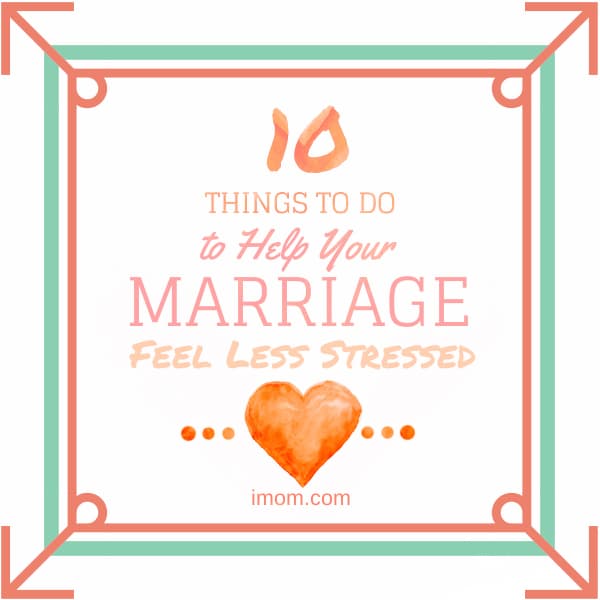My eyes popped open several minutes before my alarm buzzed. Then it hit me: I have to get ready for work! Stress twisted my gut. But I brought it upon myself by starting a new job. We actually welcome stress all the time: when we bring home a new baby, try a new recipe, or get the kids ready for school. But, as you know, stress also comes without invitation. Give me a cranky toddler who won’t get dressed or a teen stuck at school with no ride home and stress climbs on my back, not letting go!
If it’s not chronic stress—the type that can impact your health—maybe we can try to see stress in another way. Can stress possibly make us better moms? I think so. Here are 5 different ways to use stress to make it work for you.
1. Use stress to help you get better organized.
The stress of getting somewhere on time, especially with two little kids, always gets to me. There are so many steps before leaving the house. They have to wear clothes! Eat! Go to the bathroom! Tie shoes! Go to the bathroom again! Set against a ticking clock, the stress can be overwhelming. But there’s a good side to all this stress.
As you expose yourself to low levels of stress, your body, brain and neurological system start to adapt, according to research from the University of Georgia: “Daily stressors can help a person become more organized and efficient.” You’re learning how to prepare for these stressful moments and getting better each time you go through the same steps.
2. Allow stress to expose your current strengths.
While getting somewhere on time has never been one of my strengths, I’ve learned I’m really good at being prepared. Maybe it’s all those years of being a Girl Scout, or maybe it’s just my personality, but when my kids were little, I packed my diaper bag and stroller with efficiency. Today, I use these skills to teach my kids how to pack their bags for trips and to pack lunches for school. Being prepared and organized are good antidotes to stress.
Until you’re put under stress, you might not know some of your strengths. But with time, you realize you’re good at improvising in the kitchen or in waiting rooms, or you’re really resourceful with how well you tell stories using inked faces on your fingertips.
Until you’re put under stress, you might not know some of your strengths. Click To Tweet3. Optimize stress for personal growth.
“I know this day’s gonna be stressful,” my son said as we piled into the car. But as I strapped on my belt, I remembered a trick I learned when he was just a baby. “Don’t look at it that way because you’ll be miserable,” I said. “See it as a challenge instead. You’re good at overcoming challenges.” After a moment, he nodded.
Changing your mindset can help you grow in stressful moments. A little shift in thought is all you need. According to The American Institute of Stress, if you don’t perceive something as a threat, your body won’t respond by producing a threat-based stress response. So, if you view something as a challenge, “the fear you would normally experience may turn into excitement and anticipation,” the Institute says. In other words, you can trick yourself into handling stress better.
4. See how stress builds your resilience.
Anything that causes stress can make you feel uncomfortable. My daughter just turned 13, and together, she and I planned a big birthday party with her friends. I’ve been throwing parties for her for over a dozen years, but I have to admit, it’s gotten easier, even with a kid with food allergies.
When stressed and put under pressure, you figure out your capabilities and develop resilience for the next time stress comes knocking—like when you have to take your sick child to the doctor’s office or when your sink springs a leak. Because it’s building your resilience, low to moderate levels of stress can be helpful.
5. Accept stress as a tool to build brain strength.
Stress typically brings out the worst in us. We’re crabby with others. But it seems that the more low- to moderate-level stress we can handle, the better our brains function—and the nicer we become under pressure. As Dr. Oshri, the head researcher at Georgia, says, more brain strength is associated “with significantly less emotional problems and antisocial behavior.”
Your brain adapts each time you handle stress. Little stressors like taking the kids to the portrait studio or helping a child study for a test have become even smaller over time.
Do you find that how you handle stress has gotten easier as you’ve gotten older?










